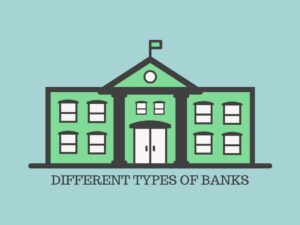The Difference Between DD and Cheque
Introduction: Lorem ipsum dolor sit amet, consectetur adipiscing elit. Sed viverra vehicula justo sit amet vestibulum. Proin rutrum lacus vel risus sollicitudin, at congue lectus malesuada.
What is DD?
DD stands for Demand Draft. It is a prepaid negotiable instrument that directs a bank to pay a specific amount of money to a specified person.
Examples of DD:
- A company purchasing goods from another company issues a DD to make the payment.
- An individual pays the fee for an application form through a DD.
Uses of DD:
- Used for making secure payments to individuals or organizations within a specific geographical area.
- Helpful for transactions when a bank guarantee is required.
What is Cheque?
A cheque is a written order issued by an account holder to a bank, instructing them to pay a specific amount of money to a named person or entity.
Examples of Cheque:
- Someone writing a cheque to pay the rent of their apartment.
- An individual paying a merchant by giving them a cheque.
Uses of Cheque:
- Convenient method for making payments, especially for larger amounts.
- Useful for keeping a record of transactions as the cheque acts as a proof of payment.
Differences Table:
| Difference Area | DD | Cheque |
|---|---|---|
| Payment Mode | Prepaid | Postpaid |
| Validity | Usually 3 months | No expiry, unless the account is closed |
| Availability | Issued by banks and some financial institutions | Issued by account holders |
| Transaction Fee | Fixed and generally low | Variable and depends on the account type and bank charges |
| Cancellation | Possible before it is deposited or cleared | Possible but requires careful follow-up to stop payment |
| Usage Limit | Can be used within a specific geographical area | No geographical restriction |
| Security | Relatively more secure as it is prepaid and requires bank assurance | Less secure as it can bounce if the account does not have sufficient funds |
| Applicability | Commonly used within a country | Can be used both within and outside the country |
| Issuer | Issued by banks and financial institutions | Issued by the account holder |
| Clearance Time | Usually within a day or two | Varies, can take a few days to clear completely |
Conclusion:
In conclusion, DD and cheques are both financial instruments used for making payments; however, they have several key differences. DDs are prepaid and provide a more secure mode of payment, whereas cheques are postpaid and offer more convenience for larger transactions.
People Also Ask:
1. Can a DD be canceled?
Yes, a DD can be canceled before it is deposited or cleared by contacting the issuing bank and following their specific process.
2. Can a cheque bounce?
Yes, a cheque can bounce if the account holder does not have sufficient funds to cover the amount mentioned on the cheque.
3. Can I issue a DD from any bank?
DDs can usually be issued from banks and some financial institutions that offer this service. It is advisable to check with your bank for the availability of this facility.
4. Can I use a cheque outside my country?
Yes, in most cases, cheques can be used both within and outside your country, but it may involve additional processes and charges.
5. Which is safer, DD or cheque?
DDs are considered comparatively safer as they require prepayment and bank assurance before issuance, reducing the risk of fraudulent activities or insufficient funds.


